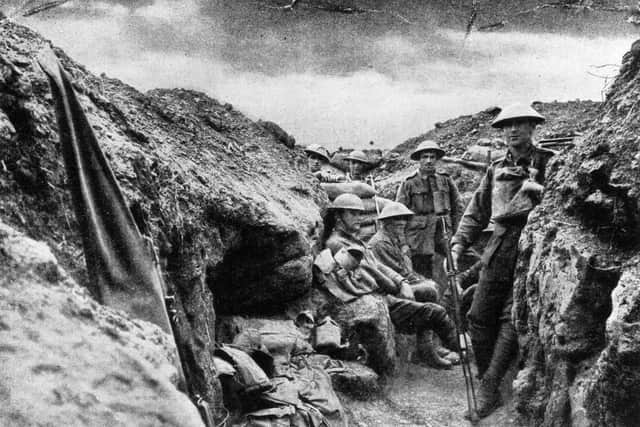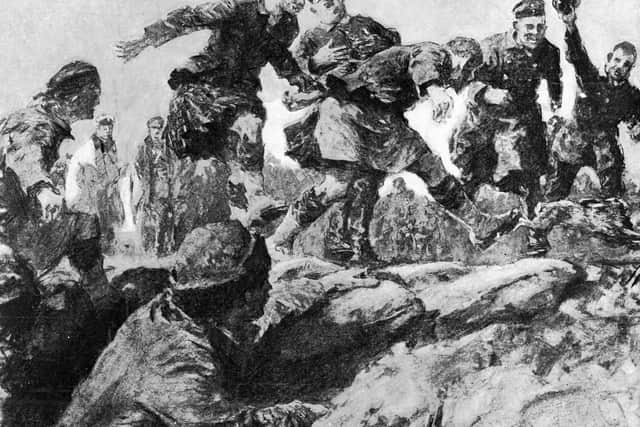1914 Christmas truce: what happened during WWI on Christmas Day - was there a ceasefire in the trenches?
and live on Freeview channel 276
As the lights went out over Europe at the onset of the First World War - a conflict that would leave 15 and 22 million people dead - governments launched conscription programmes to build up huge armies.
Britain declared war on Germany on 4 August 1914, following a series of international crises which saw several European powers dragged into the conflict. Leaders optimistically declared that the war would be over by Christmas, and many young men and boys eagerly rushed to sign up to fight before they lost their chance.
Advertisement
Hide AdAdvertisement
Hide AdThe war was over by Christmas, but not Christmas of 1914 - the conflict dragged on for four bloody years almost without letup, until the armistice was signed on 11 November 1918. But for a brief period over Christmas 1914, on some parts of the front, the war was put on hold as soldiers on both sides celebrated the season without bloodshed.


Was there a Christmas truce during the First World War?
The Christmas truce was not sanctioned from the top - soldiers in the trenches made the decision to temporarily cease hostilities for themselves. The series of truces took place five months into the war as ammunition began to run low and fighting forces were worn down by the wars of attrition taking place across France.
In the week before Christmas 1914 soldiers from French, German and British forces crossed their trenches and spoke to each other using their limited shared language. Prior to the truce, if a soldier raised his head slightly above the protection of the trench wall, he ran the risk of being shot by a sharpshooter.
In some rare cases there were reports of soldiers from different trenches joining each other on no man’s land on Christmas Eve and Christmas Day. They would have been surrounded by the bodies of those killed during charges over the top days and weeks earlier, and there are reports that soldiers used the truce to bury their fallen comrades.
Advertisement
Hide AdAdvertisement
Hide AdIn addition, the soldiers swapped prisoners, exchanged Christmas gifts, sung carols, and even played football in no man’s land - this has become one of the most enduring parts of the Christmas truce story. The 2005 film Joyeux Noel is a dramatisation of these events.
However, truces did not occur uniformly across the front - in some cases fighting continued, though it may have been more subdued as neither side would have wanted to risk death on Christmas Day.


What happened after the Christmas truce?
Seasonal truces were attempted more sporadically in 1915 but without much success, and commanders on both sides clamped down on them as they believed it weakened their men, making them less likely to kill the enemy when fighting resumed.
Over Christmas 1915 units were encouraged to continue fighting over the period and artillery strikes were ordered along the front to discourage a repeat of 1914. Some truces occurred but on a far smaller scale than the first year of the war. In following years the fighting had become so bloody, particularly following the Somme which cost 300,000 lives, that soldiers were no longer open to truces.
Advertisement
Hide AdAdvertisement
Hide AdThe First World War stretched on for years, ending in November 1918 with millions dead - the Treaty of Versailles, signed the following year, left a bitter taste in the German’s mouths due to its harsh terms and laid the groundwork for the Second World War.
In 1939 Hitler invaded Poland and the Second World War began - trenches were much less common in this conflict and there are no records of Christmas truces during the six year war, which is still the bloodiest in human history.
Comment Guidelines
National World encourages reader discussion on our stories. User feedback, insights and back-and-forth exchanges add a rich layer of context to reporting. Please review our Community Guidelines before commenting.
